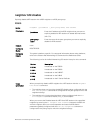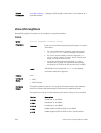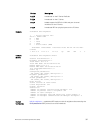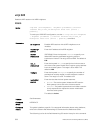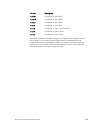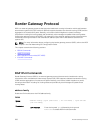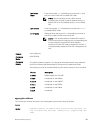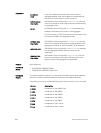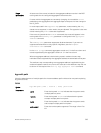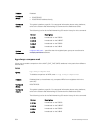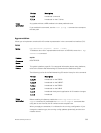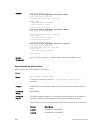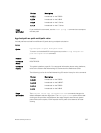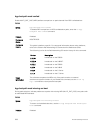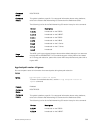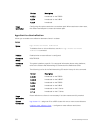Usage
Information
At least one of the routes included in the aggregate address must be in the BGP
routing table for the configured aggregate to become active.
If routes within the aggregate are constantly changing, do not add the as-set
parameter to the aggregate as the aggregate flaps to keep track of the changes in
the AS_PATH.
In route maps used in the suppress-map parameter, routes meeting the deny
clause are not suppress; in other words, they are allowed. The opposite is also true:
routes meeting the permit clause are suppressed.
If the route is injected via the network command, that route still appears in the
routing table if the
summary-only parameter is configured in the aggregate-
address command.
The summary-only parameter suppresses all advertisements. If you want to
suppress advertisements to only specific neighbors, use the
neighbor
distribute-list command.
In the show ip bgp command, aggregates contain an ‘a’ in the first column and
routes suppressed by the aggregate contain an ‘s’ in the first column.
When an aggregate address is denied using a peer's outbound route-map,
individual routes suppressed by the aggregate address are advertised to that peer.
The attribute-map corresponding to an aggregate address is applied during the
outbound update creation time; hence the value set in that attribute-map will not
be shown in the output of the show ip bgp aggregate route command.
bgp add-path
Allow the advertisement of multiple paths for the same address prefix without the new paths replacing
any previous ones.
Z9500
Syntax
bgp add-path [send | receive | both] path-count
Parameters
send Enter the keyword send to indicate that the system sends
multiple paths to peers.
receive Enter the keyword receive to indicate that the system
accepts multiple paths from peers.
both Enter the keyword both to indicate that the system sends
and accepts multiple paths from peers.
path-count Enter the number paths supported. The range is from 2 to
64.
Border Gateway Protocol
363



